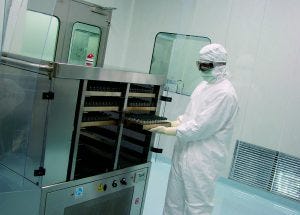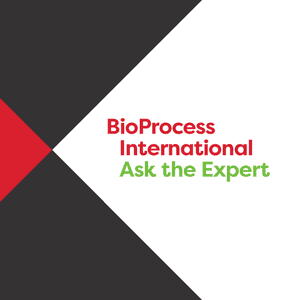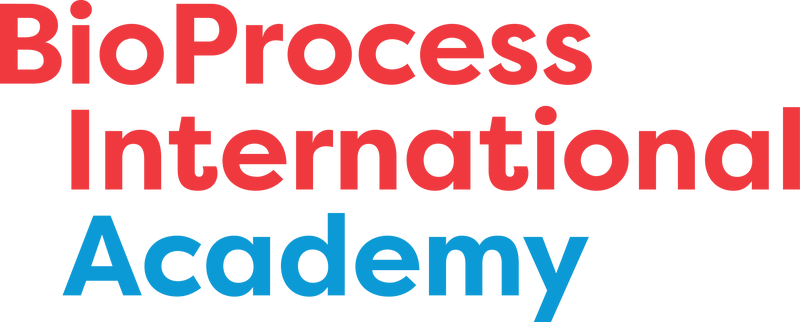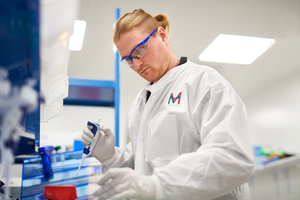Managing Customer and Regulatory Expectations
September 15, 2016

Patheon’s facility in Greenville, NC
Partnering with a contract development and manufacturing organization (CDMO) allows drug-product sponsors to turn fixed costs into variable costs. Market forecasting by pharmaceutical companies drives numerous decisions in development programs: sales-force resources, geographic resource distribution, and (of course) manufacturing planning. It is a widely accepted fact in the pharmaceutical industry that accurate forecasting is a challenge, especially for new drug launches. A number of models can be used to develop drug forecasts, but none of these models is perfect. No one model can account for all uncertainties in the global marketplace.
Forecasting will continue to be a challenge for biopharmaceutical companies. Innovative organizations will explore avenues to improve accuracy while also looking for ways to manage product risk in a volatile market. Flexible manufacturing solutions will become an attractive option for companies working toward more efficient business management and maximum market opportunities with affordable solutions to scale. Such solutions can help the biopharmaceutical industry avoid the unnecessary expense of inaccurate demand forecasts. A recent survey conducted by business intelligence firm ORC International and sponsored by Patheon focused on product launch challenges (1). Results showed instances of demand forecasts being adrift by over 50%, leading to sales losses and reputational damage for the companies involved. A delay in launch can cost an average of US$15 million per drug, per day.
We expect to see the industry shift away from high-volume, commodity/blockbuster products to smaller, more complex products targeted at niche indications. This will involve equipment moving to smaller-volume, higher-containment facilities with more flexible changeovers than ever before. This trend is driving our customers to find ways to adapt their supply chains for flexibility and responsiveness.
Flexible manufacturing services complement a traditional outsourcing service model through adaptable and scalable capacity, allowing clients to increase or decrease capacity as needed. In response, Patheon has implemented four primary manufacturing models for its clients: dedicated assets, fractional ownership, flexible network access, and site within a site.
In the Dedicated Asset Model, a facility is built for exclusive use by a single client, in essence providing a “manufacturing playground” with complete flexibility around capacity use and product technology transfer. For example, a client with two or more products in similar formats (e.g., vial, capsule, or tablet) launching within a span of 18 months could use this model. It allows the client to own all the capacity and modify the manufacturing schedule until the exact market demand for each product is determined.
In a Fractional Ownership Model, a single facility is constructed for a limited number of clients, providing flexible capacity within defined bands purchased by them. This model is ideal for clients who have one or two products in similar formats that they plan to launch within a span of 18 months. That’s especially true if their budget does not allow for a dedicated facility/manufacturing line, although they still need flexibility in capacity and manufacturing schedules.

A Patheon employee at work in Swindon, UK
A client that is launching one product but needs the flexibility to manufacture it at multiple locations may choose Flexible Network Access. With this approach, the client can access an existing network of manufacturing facilities. For example, with Patheon, it could be one facility in North America and another in Europe. The client would own part of that manufacturing capacity and thus have the ability to modify its schedule until market demand for each product becomes clear.
The “site-within-a-site” Condominium Model offers a dedicated manufacturing suite inside an existing CDMO site. This allows innovator companies to leverage the infrastructure, people, and processes of a large CDMO while reducing the investment required to create their own manufacturing capacity. Clients gain the advantage of lower costs, shorter times to build capacity, and higher rates of success. A client that needs this model is one with a product that cannot be manufactured on any existing conventional manufacturing line, but rather needs a custom-built facility designed and operated by a CDMO. That allows experts to work with equipment suppliers, validate processes, and run the facility to get the client’s product to market most efficiently.
In the face of uncertain forecasts, a CDMO can offer the facilities, equipment, and process technology expertise needed for operations and risk management. Technology transfers are commonly viewed as part of the normal course of business. A different and more innovative perspective is that they are an opportunity to highlight a CDMO’s integrated and efficient processes that give clients a strategic and financial advantage — by quickly and effectively minimizing interruption to product supply.
Strategies for Ensuring Regulatory Compliance
Regulatory compliance is essential for ensuring patient safety and a biomanufacturing site’s right to operate. A CDMO must have regulatory compliance as a core competency because it is essential to establishment of a reliable, high-quality commercial supply chain. At Patheon, we consider this to be part of our corporate “DNA.” That is clearly stated as part of the company’s “five commitments,” which include the promise to operate its business in a compliant, safe, disciplined, responsible, and ethical manner. Strong leadership at both the corporate and site level is critical to drive a strong quality culture at any biopharmaceutical company or CDMO. That in turn drives improved business performance. Additionally, having a global footprint can be a critical factor in helping clients understand and navigate processes and expectations of both international and US regulatory authorities.
CDMOs are subject to large numbers of regulatory inspections. Extensive experience interacting with regulators provides them with an opportunity to understand global trends and current regulatory expectations and perspectives about quality. Sharing lessons learned internally enables network-wide continuous improvement. Patheon uses these experiences as part of its quality management system in tracking trends and developments, as well as communicating findings at regional and global meetings.
Regulatory compliance also can be ensured through a robust metrics-based surveillance program. Selecting the right metrics is critical to monitoring quality systems and processes. Driving continuous improvement efforts and visibility of such metrics to senior management must be timely and efficient. Enterprise-wide quality metrics assist in developing a company mindset of operational excellence, and for CDMOs it helps establish a customer-oriented culture. Implementation of electronic solutions for tracking and reporting improve the efficiency of processes, making them free of subjectivity.
The two most important elements of a strong quality culture are employee ownership and understanding the importance of products the company develops and manufactures — in our case, for our clients. CDMOs have few opportunities for direct interaction with patients. Therefore, partnering with clients to educate our staff on product use and benefits, including patient testimonials, contributes to creating a quality-driven corporate culture.
Increasingly Complex Formulations
Drug sponsors that outsource, especially virtual companies, rely on CDMOs for the full range of traditional formulation technologies as well as newer technologies such as hot-melt extrusion, spray drying, and continuous processing. Even with those end-to-end offerings already in place, CDMOs face increased pressure for more robust processes, more agile supply chains, and lowered costs. In the past few years, the pharmaceutical industry has seen a shift toward increasingly complex formulations and processes, controlled-release combination products, abuse-deterrent formulations, active coatings, and techniques for handling insoluble compounds.
The increasing complexity of formulations in our modern quality by design (QbD) paradigm demands an in-depth understanding of development options to better match each material’s characteristics with critical process parameters (CPPs) and critical quality attributes (CQAs) of each active pharmaceutical ingredient (API) all the way to finished drug products. Clients can benefit from the integrated capabilities of CDMOs, which can provide them with a single path to meet each need and stage of the drug development process. For example, Patheon’s offerings include product development, drug substance services, and drug product services, all built on the company’s quality and operational excellence platform. It ensures that clients have rapid access to the most reliable and regulatory-compliant solutions. Integrated CDMOs also offer a breadth of API and formulation capabilities and experience that enables robust development of complex formulations. Often such formulations require additional technologies and know-how that comes from previous work with similar compounds to develop formulations, analytical methods, and manufacturing processes.
As clients increasingly seek complex drug formulation services and delivery technologies that are outside their own in-house capabilities, the contract manufacturing industry is expected to expand its already broad range of specialized dosage and formulation solutions to serve the growing drug-product market segment. Patheon’s expansion projects include high-potency, softgel, controlled substance, modified-release. and sterile dosage forms. The company’s capabilities and expertise in delivering complex clinical and commercial scales in biologics manufacturing is key to the US market.
The Challenges of Low Solubility
It is estimated that one-third of all clinical failures in drug development are due to solubility and bioavailability challenges (2). An increase in low-solubility drugs in the development pipeline is directly related to the challenging diseases for which biopharmaceutical companies are researching treatments. The complexity of new molecules has led to a demand for technical expertise not just in solubility and formulation, but also in the approach to scale-up and manufacture of such complex compounds — expertise that many small or specialty companies do not possess. Combined with optimal technologies that can be scaled up through commercialization, solubility-enhancement capabilities present a key hurdle for biopharmaceutical companies that want to move their products to market efficiently and cost-effectively.
That has resulted in an increased demand for solutions to poorly soluble compounds and for expertise in sterile development and manufacturing. Patheon has responded to that demand by incorporating a differentiating approach to solubility enhancement called the Quadrant 2 approach. That tactic involves leveraging a molecule’s characteristics to predict which solubility-enhancement technology will work best for a given client, reducing the amount of rework needed (if any).
The more complex drug formulations and processes become, the higher is the need for a stringent development approach to better understand the characteristics, CPPs, and CQAs of both materials and products. A robust, well-considered design of experiments (DoE) approach can help ensure a high-quality outcome.
Advances in Quality by Design
QbD is one of several technology trends transforming pharmaceutical production. It has now become a general expectation for drug product development. Robust continuous-improvement programs based on effective root-cause analysis tools and DoE are now used routinely to help companies understand their own product and process characteristics. QbD can benefit CDMOs by allowing them to push for phase-appropriate formulation activities with their clients while eliminating potential rework. The challenge is to balance the amount of development work against the cost and sometimes limited amount of API available. At the same time, clients always face pressure to get their products to market as quickly as possible. Therefore, as QbD has become the standard, product sponsors often are torn between timelines and budgets, balancing the need for robust formulations against external pressures.
The Need for Supply Chain Security
Another significant change has increased the industry’s focus on supply chain security. Better control of suppliers, more reliable processes, and greater flexibility to meet shifting demands are all becoming increasingly important. Also, CMDOs and sponsor organizations now are considered jointly responsible for the integrity, safety, and efficacy of their products.
Like CDMOs, drug sponsors too are seeing the effects of the increased emphasis on supply chain security and development costs, which contributes to their trend toward more outsourcing. CDMOs that focus on manufacturing and efficient capacity use increasingly can provide products at lower cost. Vertically integrated CDMOs such as Patheon can maximize supply chain effectiveness by providing coordinated, shortened development cycles and an array of commercial dosage forms to accommodate the specific characteristics of every API. Sponsors, in turn, can delay or prevent significant investment in underused capacity, particularly for the increasing diversity in capabilities.
Reference
1 Impact of Incorrect Forecasts on New Product Launches. Patheon: Durham, NC, March 2016; http://info.patheon.com/flexiblemanufacturing.
2 Crew M. The Second Quadrant: A Call for Collaboration to Meet the Bioavailability Challenge. Drug Dev. Deliv. May 2013; www.drug-dev.com/Main/Back-Issues/FORMULATION-DEVELOPMENT-A-Call-for-Collaboration-t-562.aspx.
Franco Negron is president of drug product services at Patheon, 4815 Emperor Boulevard, Suite 300, Durham, NC 27703-8470; 1-919-226-3200, fax 1-919-474-2269; www.patheon.com.
You May Also Like





